November 27, 2025 | 22:23 GMT +7
November 27, 2025 | 22:23 GMT +7
Hotline: 0913.378.918
November 27, 2025 | 22:23 GMT +7
Hotline: 0913.378.918

Microphones of television reporters “spring” from the plants’ pot. This compelling image was captured at the learning trip organized by the Australian Center for International Agricultural Research (ACIAR). The informative session at Can Tho University on August 8 is within the ACIAR - Vietnam 30th Anniversary Program framework. Agriculture reporters across the country gather in the Mekong Delta to cover this special occasion.
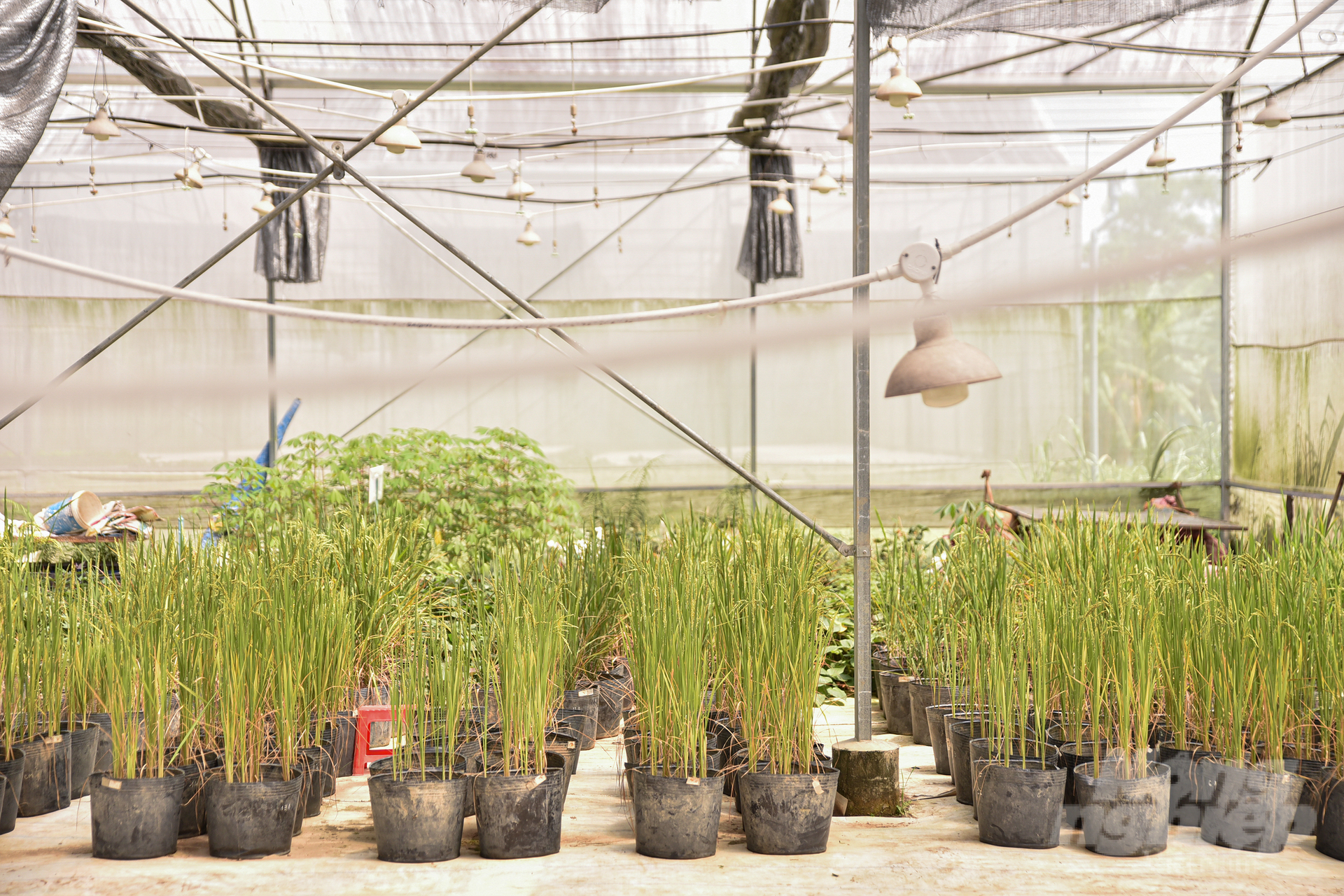
The first fieldwork point of the learning trip is a greenhouse laboratory under the project Farmer Options for Crops Under Saline Condition (FOCUS).
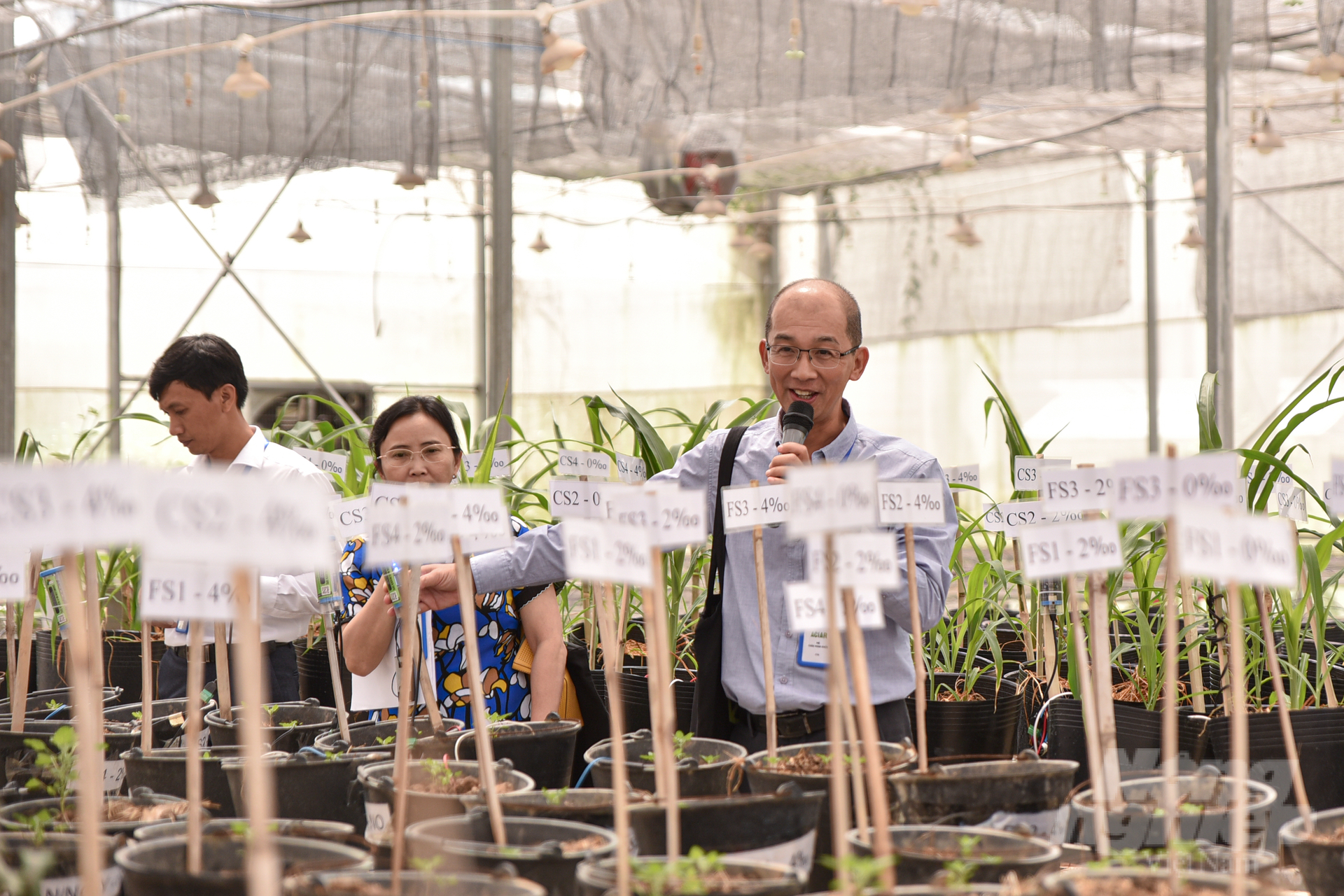
Dr. Chau Minh Khoi, Vice Dean of the School of Agriculture (Can Tho University) and the National Coordinator of the FOCUS project, introduces the research on some salinity-tolerant upland crop varieties. Among the tested types, beetroot has the highest yield and a profit of over 260 million VND per hectare, showing a potential for crop cultivation in the dry season.
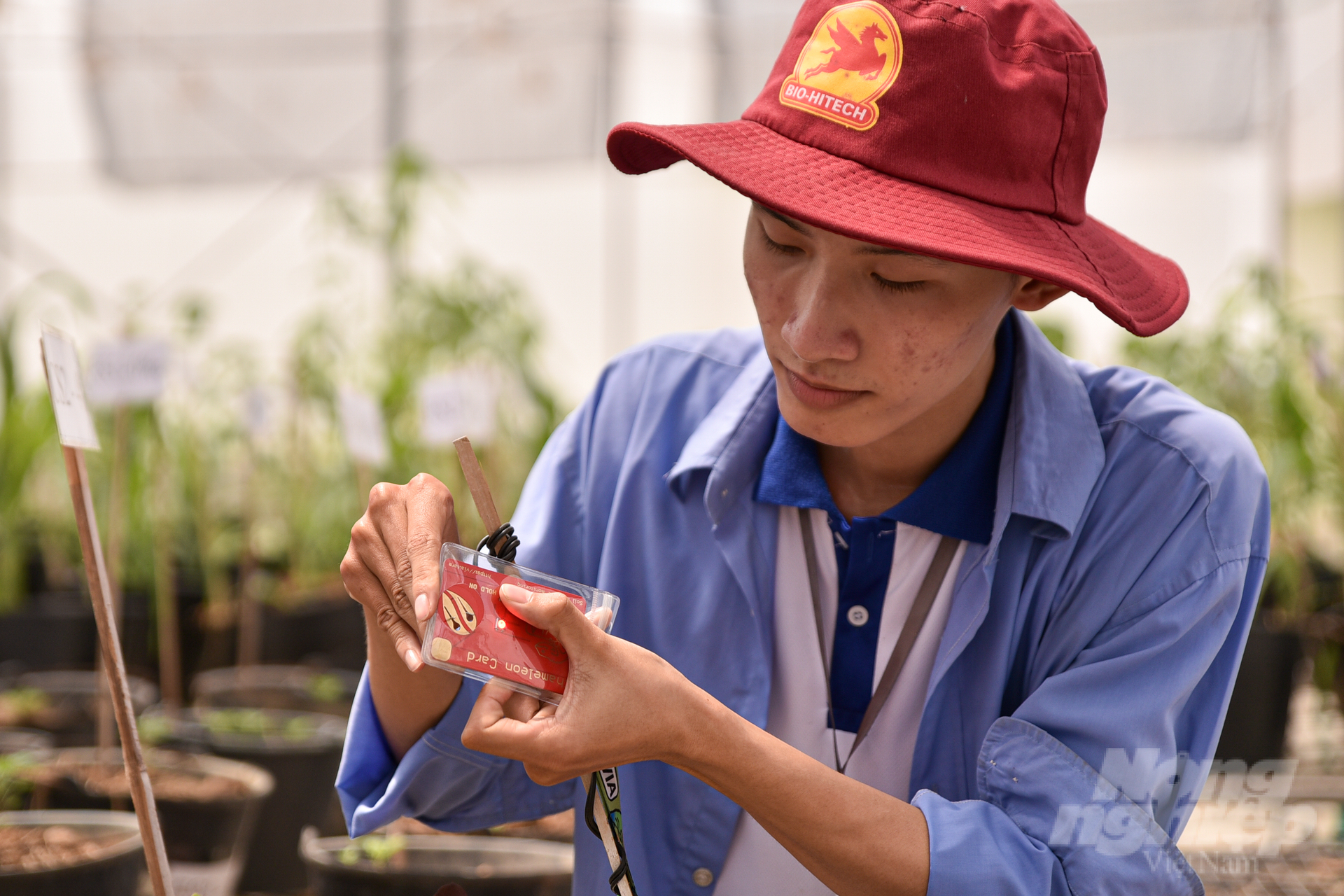
One of the scientific and technological applications of the FOCUS project is the Chameleon sensor irrigation technique, which is the portable red card. The device includes a small LED light to indicate soil moisture: green is moist soil, red is dry soil and needs watering. The irrigation timing data is then uploaded into the cloud memory to expand risk management research.
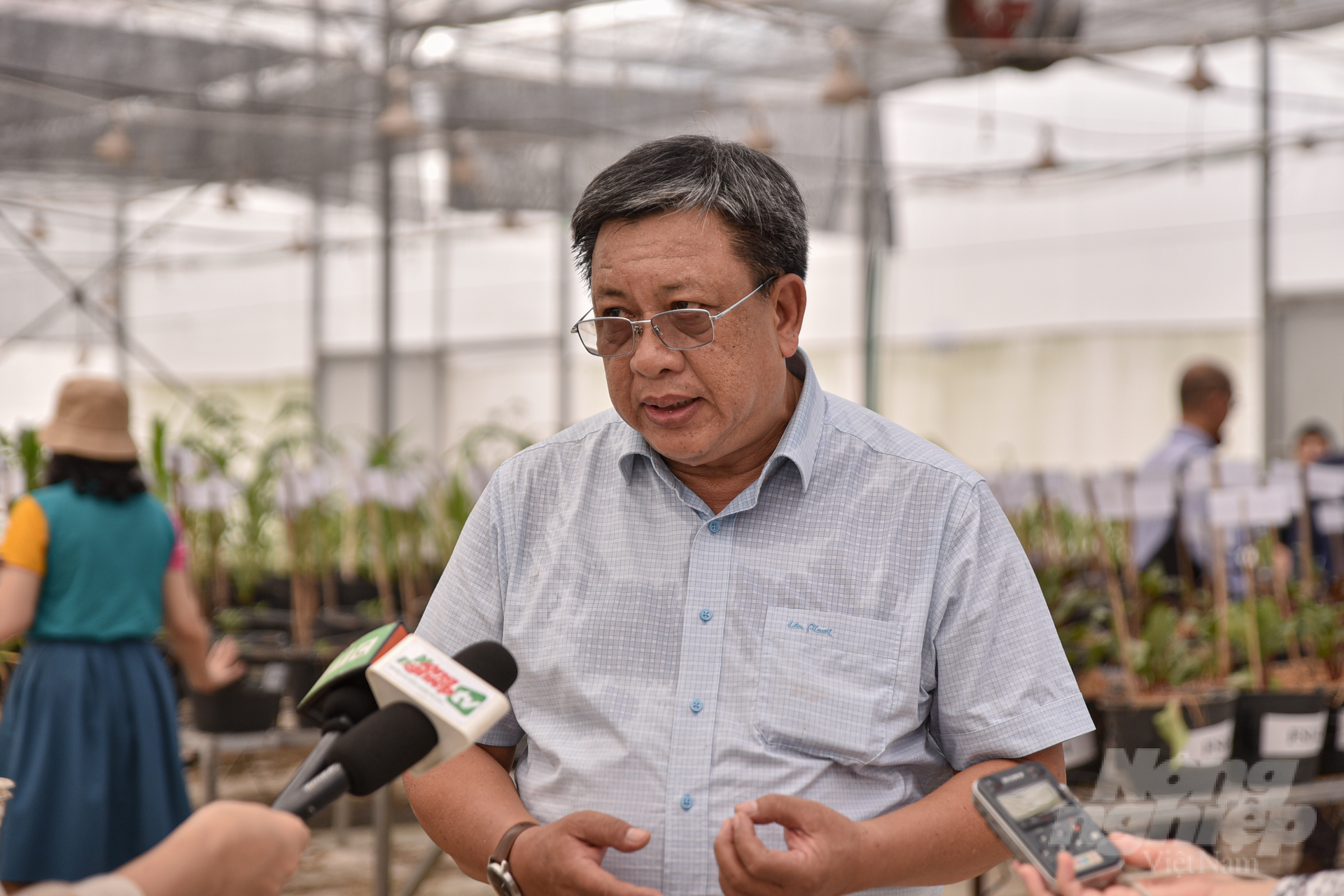
Mr. Le Thanh Tung, Deputy Director of the Department of Crop Production and Chairman of the Coordination Office of the Mekong Delta, also visits the experimental greenhouse. According to Mr. Tung, the FOCUS project has great significance in the context of increasingly severe climate change. Scientific and technological application to farming (such as the method of using straw to cover the soil) helps build a circular agricultural model, limit the burning of straw, and move towards the commitment of the Prime Minister at COP 26.
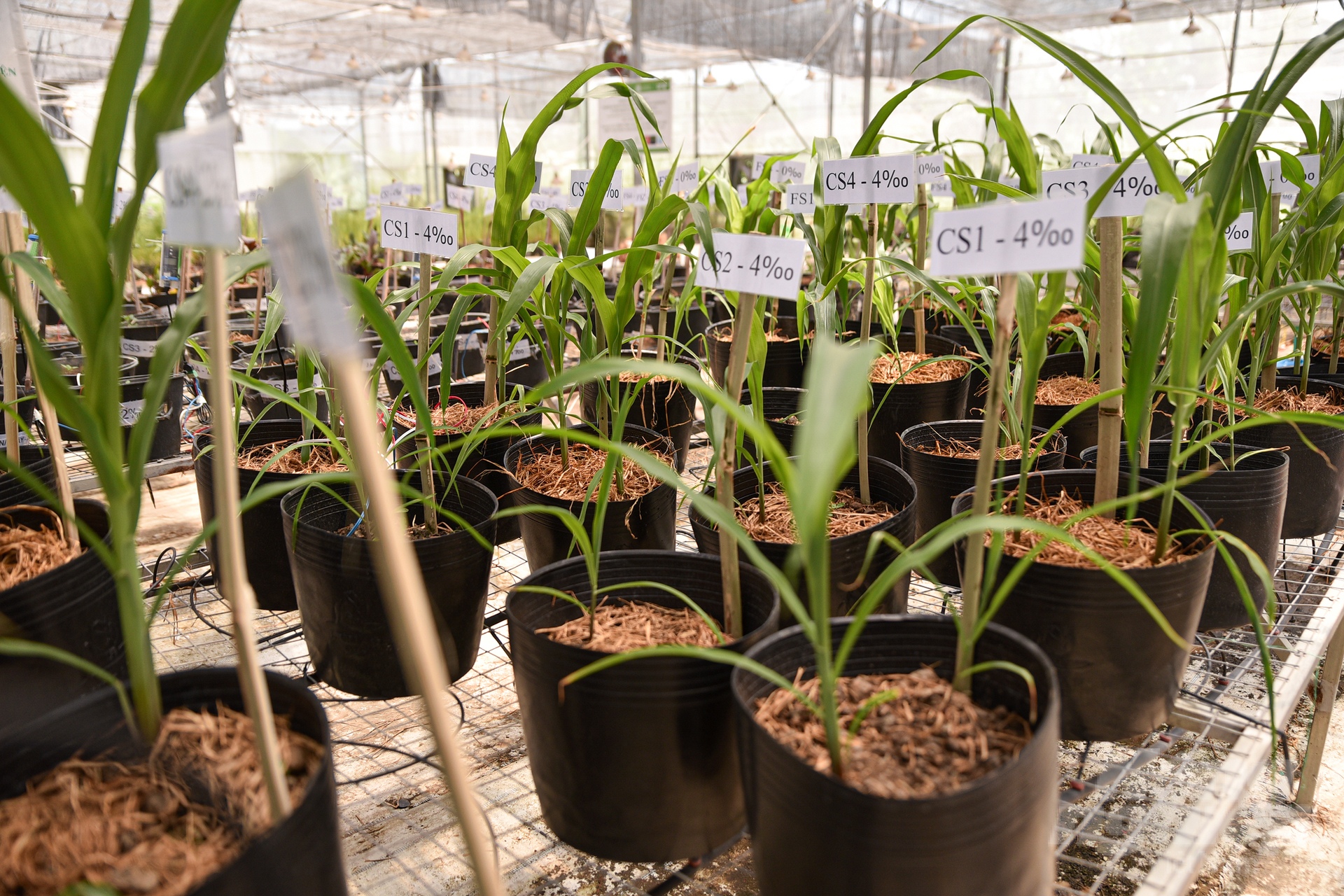
Research has demonstrated the benefits of using straw as mulch to reduce soil salinity and improve upland crop yields during a time when farmers cannot grow rice. Experiments also show that the yield of crops using this method (maize, beetroot, watermelon) increases by about 20% compared to leaving bare land in the dry season.
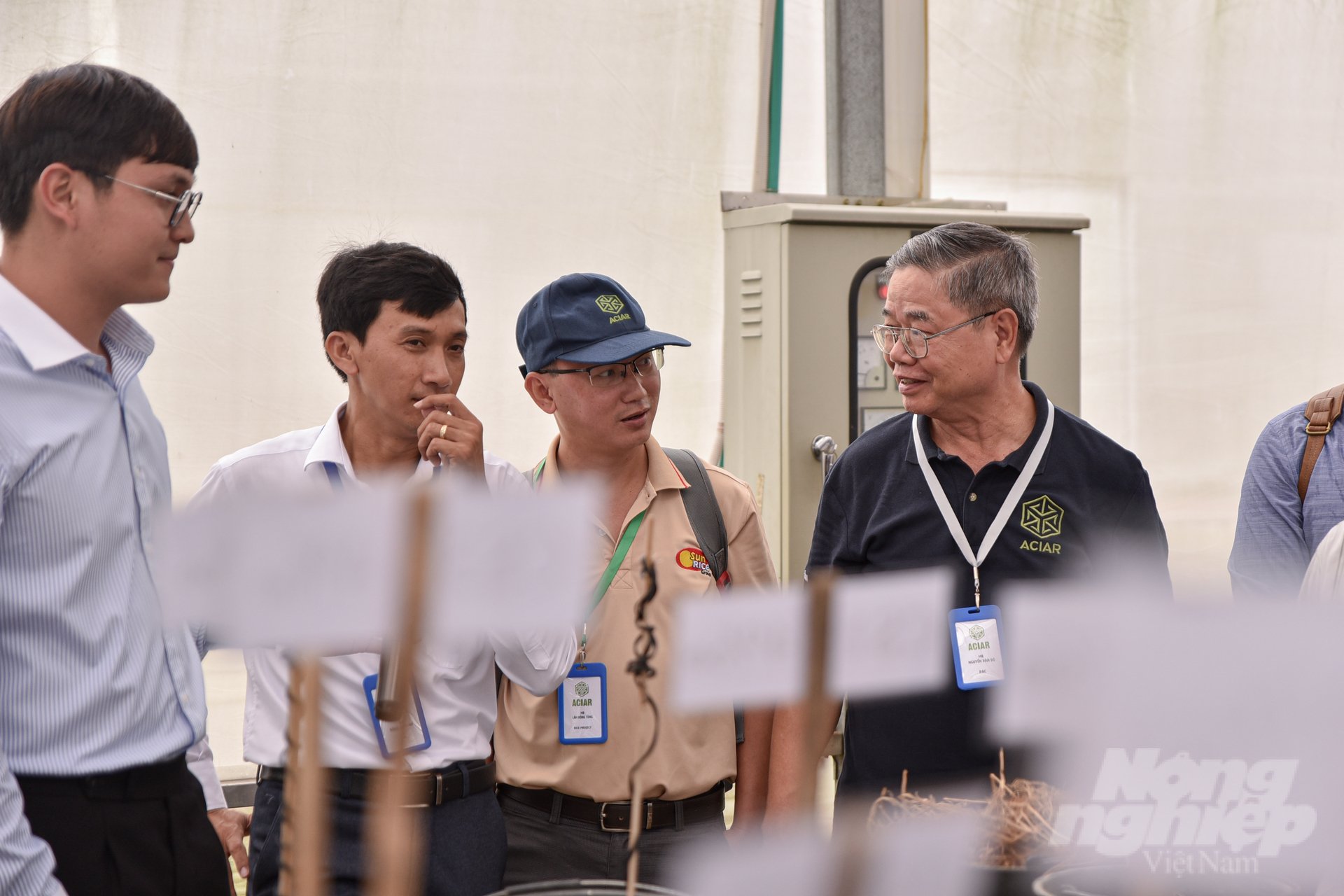
Dr. Nguyen Van Bo, Member of the Australian Policy Advisory Council on International Agricultural Research, congratulated the initial success of the FOCUS project.

Leaving the Can Tho University, the ACIAR delegation - consisting of officials, experts and reporters in the field of agriculture - travels to the Cuu Long Delta Rice Institute. The delegation visits a research model of rice varieties under the framework of the project Sustainable smallholder rice chain in the Mekong Delta.
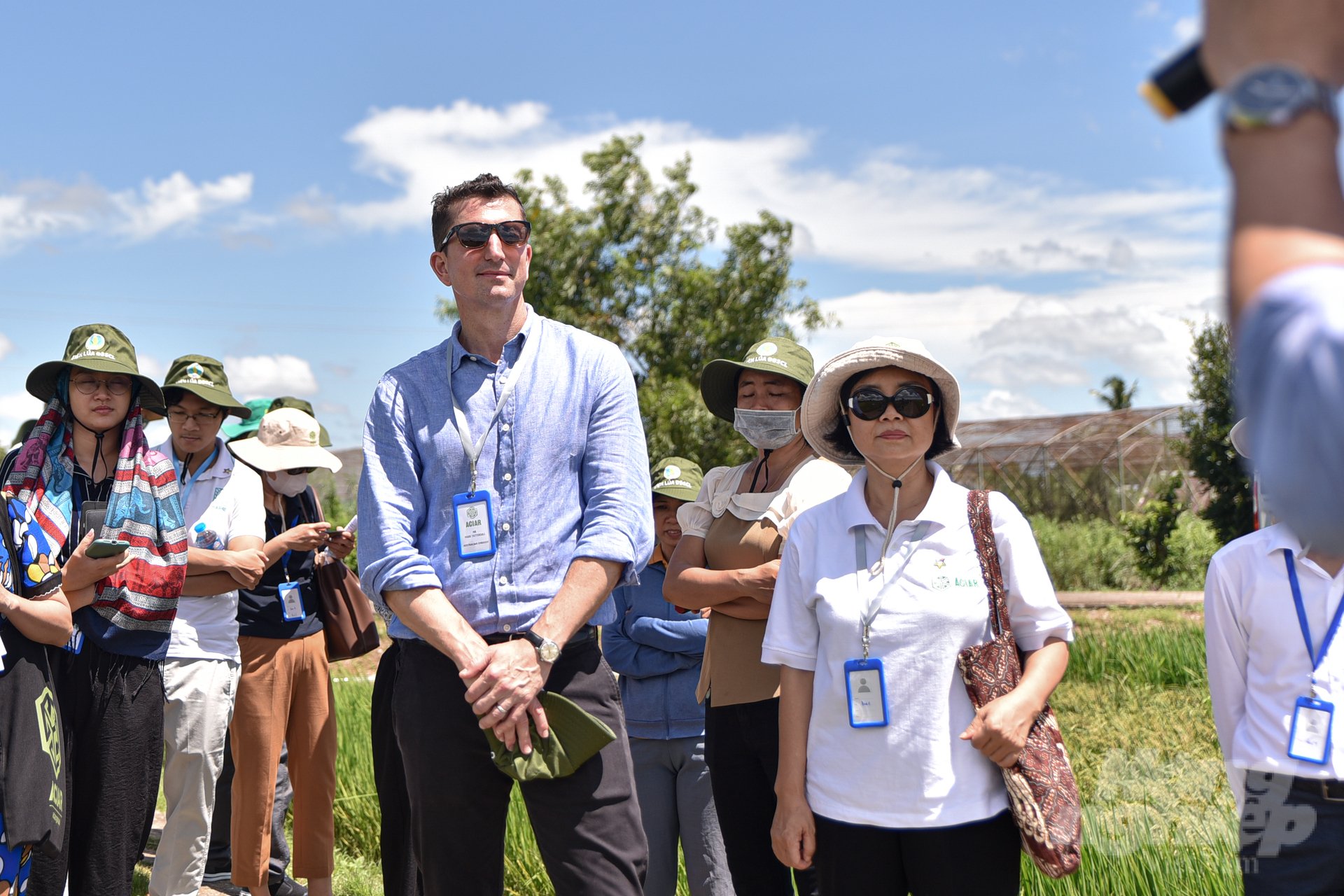
Mr. Mark Tattersall, Australia’s Deputy Head of Mission in Vietnam (blue shirt) and ACIAR Vietnam Country Manager, Ms. Nguyen Thi Thanh An (white shirt), listen to the presentation of Cuu Long Delta Rice Institute experts.
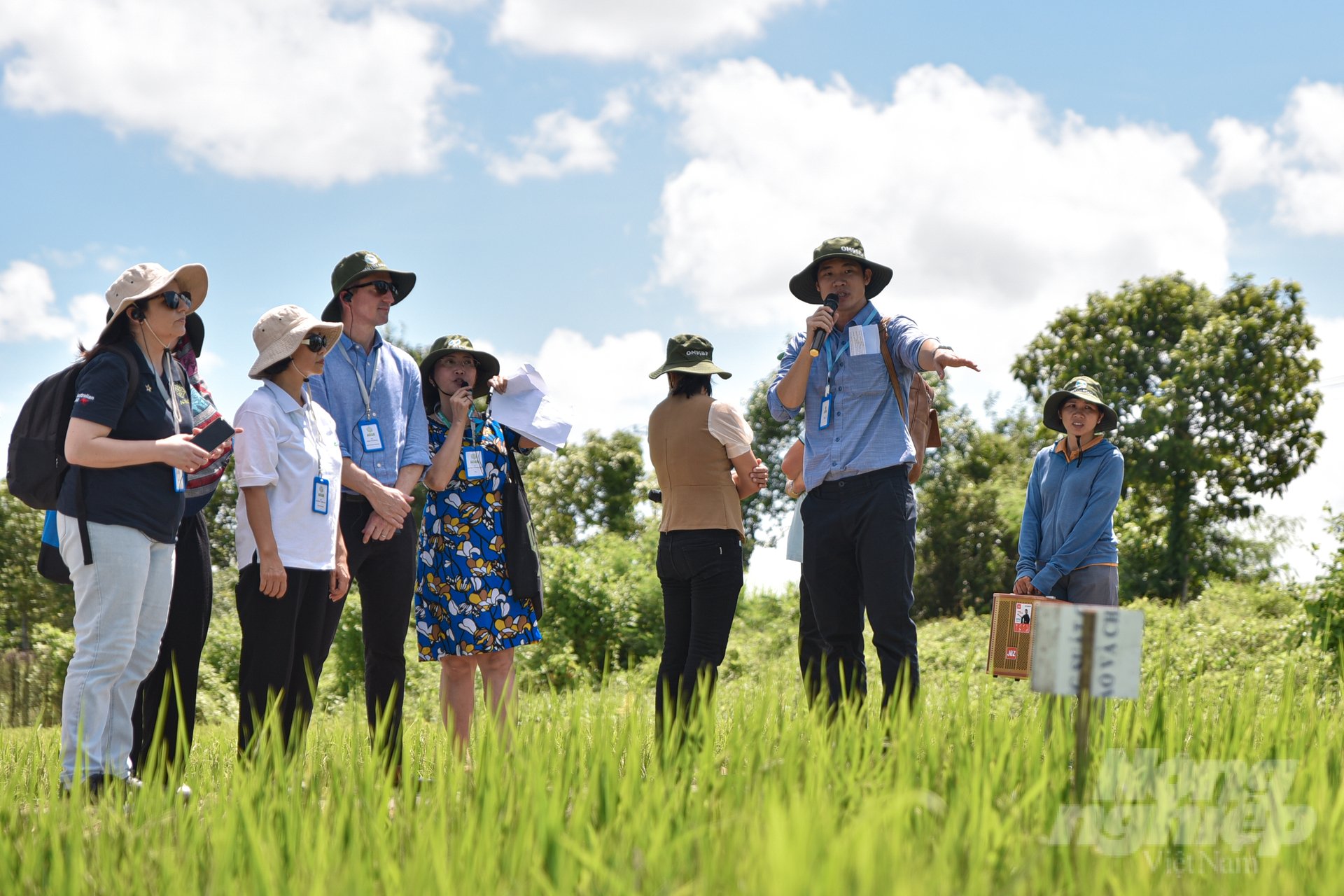
This project is jointly invested by ACIAR and SunRice Group through public-private partnership (PPP). The project aims to establish a high-yielding, sustainable, traceable, and quality-assured rice value chain for tropical short-grain rice in the Mekong Delta, meeting the requirements of different exporting markets.
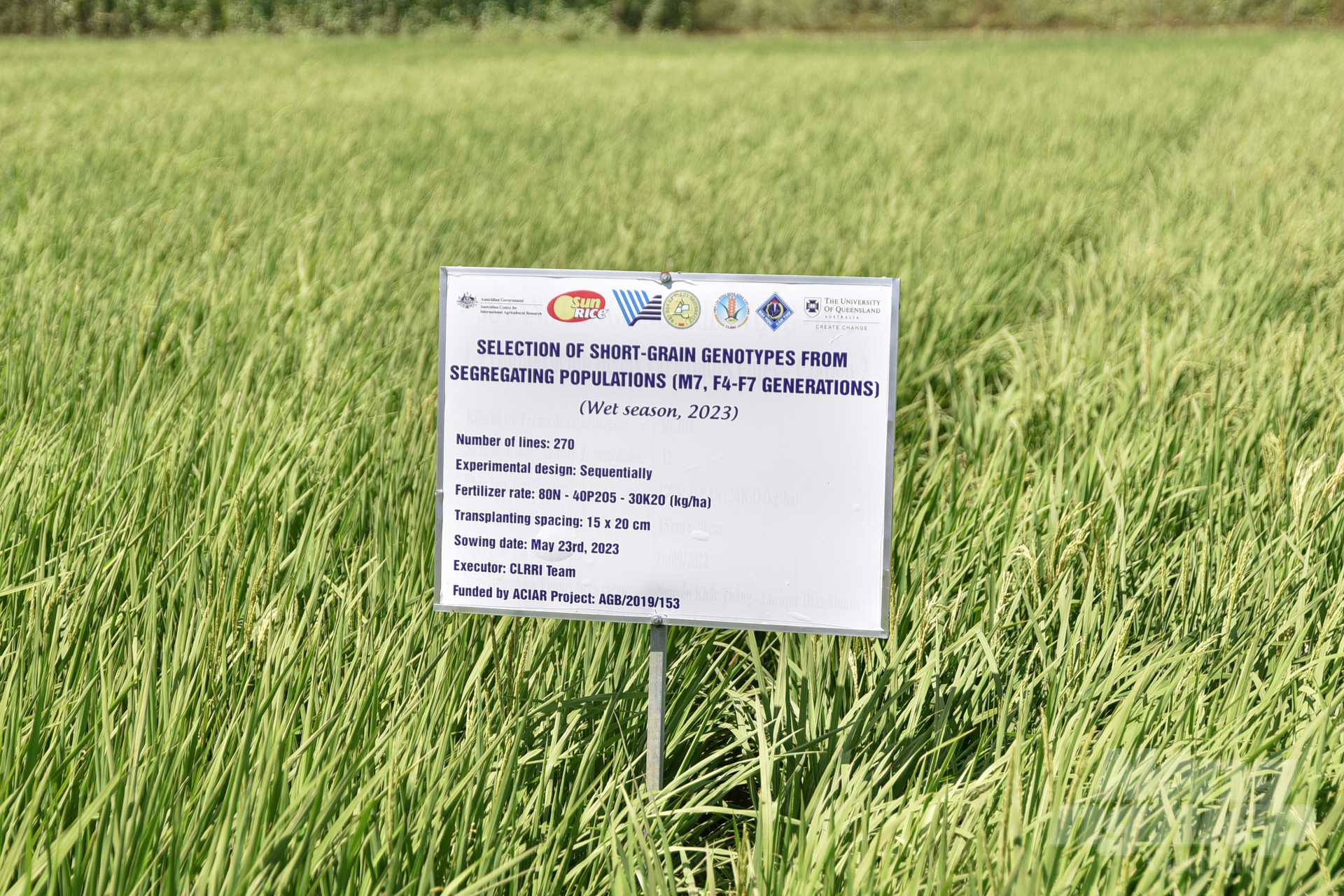
The primary beneficiaries of the project will be small-scale rice farmers. When participating in the project, they expand opportunities to strengthen their capacity in local and international value chains.
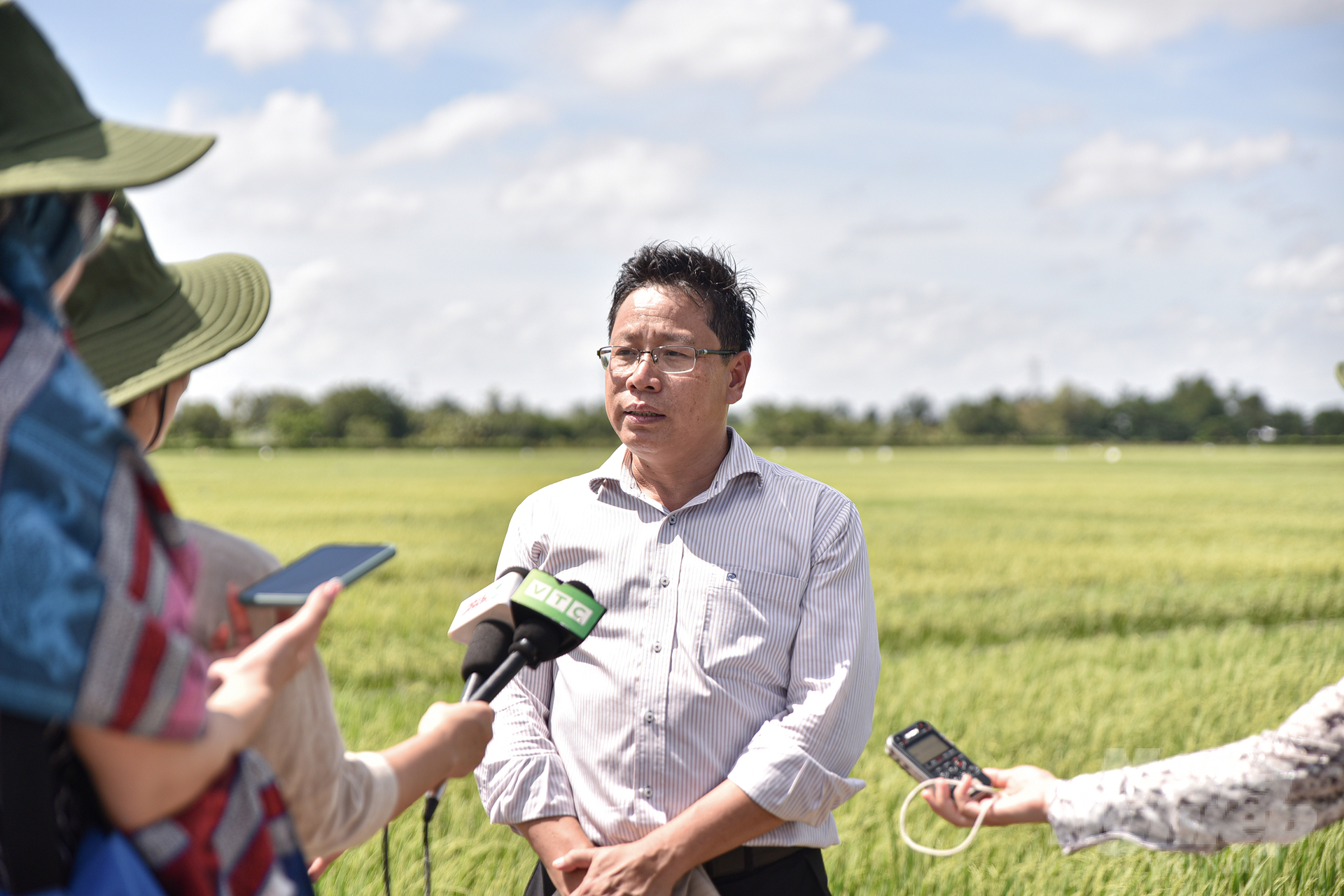
Mr. Tran Ngoc Thach, Director of the Cuu Long Delta Rice Institute, informs the press about the Sustainable smallholder rice chain project in the Mekong Delta. He states, each rice variety is studied based on practical models and climate characteristics of the Mekong Delta region, enhancing tolerance to drought and salinity. Application and understanding of rice varieties’ characteristics will help reduce input costs for farmers and increase market competitiveness for Vietnamese rice grains.
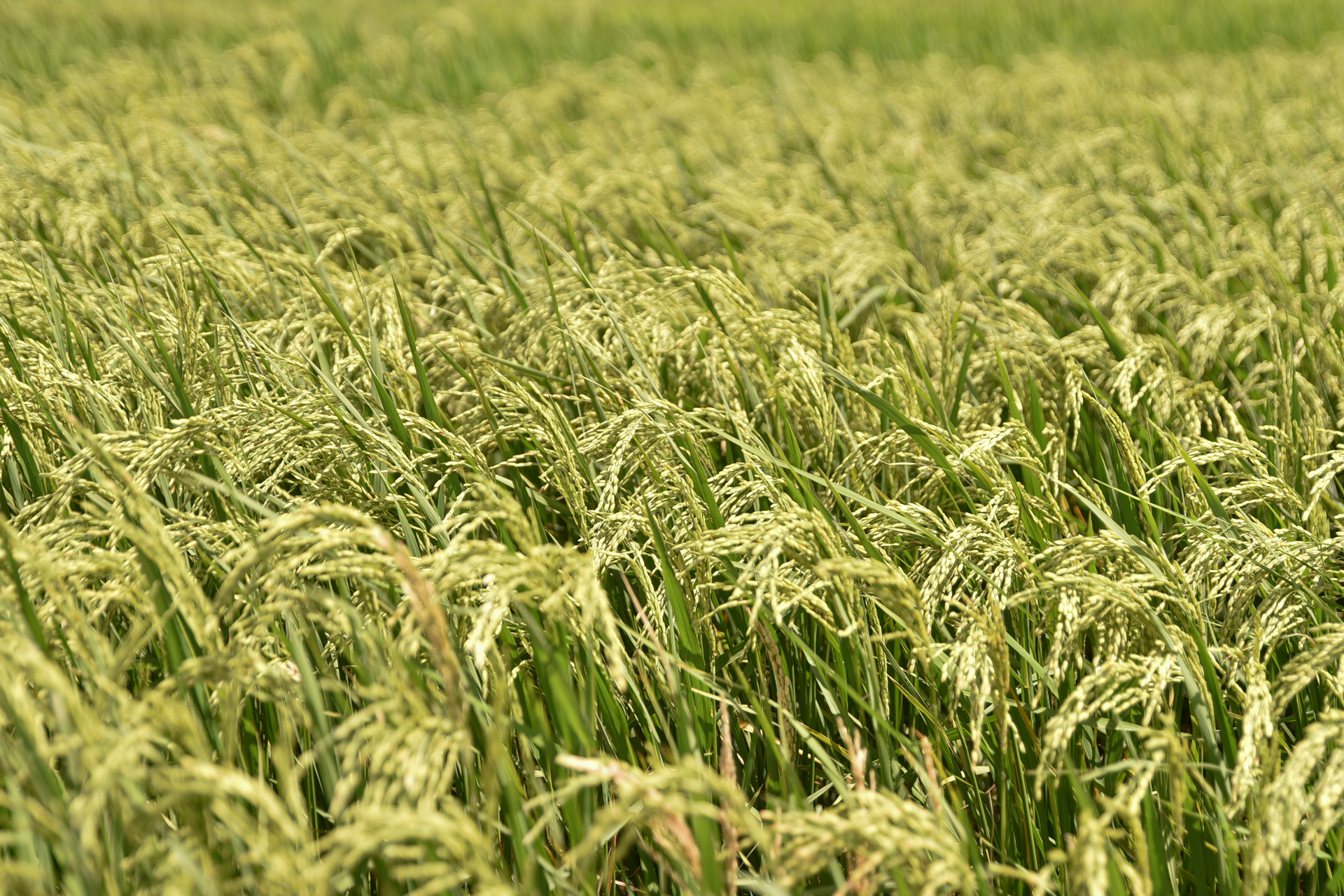
The project aims to develop short-grain Japonica rice varieties with high yield, tolerant of biotic and abiotic stresses in the Mekong Delta, and meet SunRice’s international quality requirements.
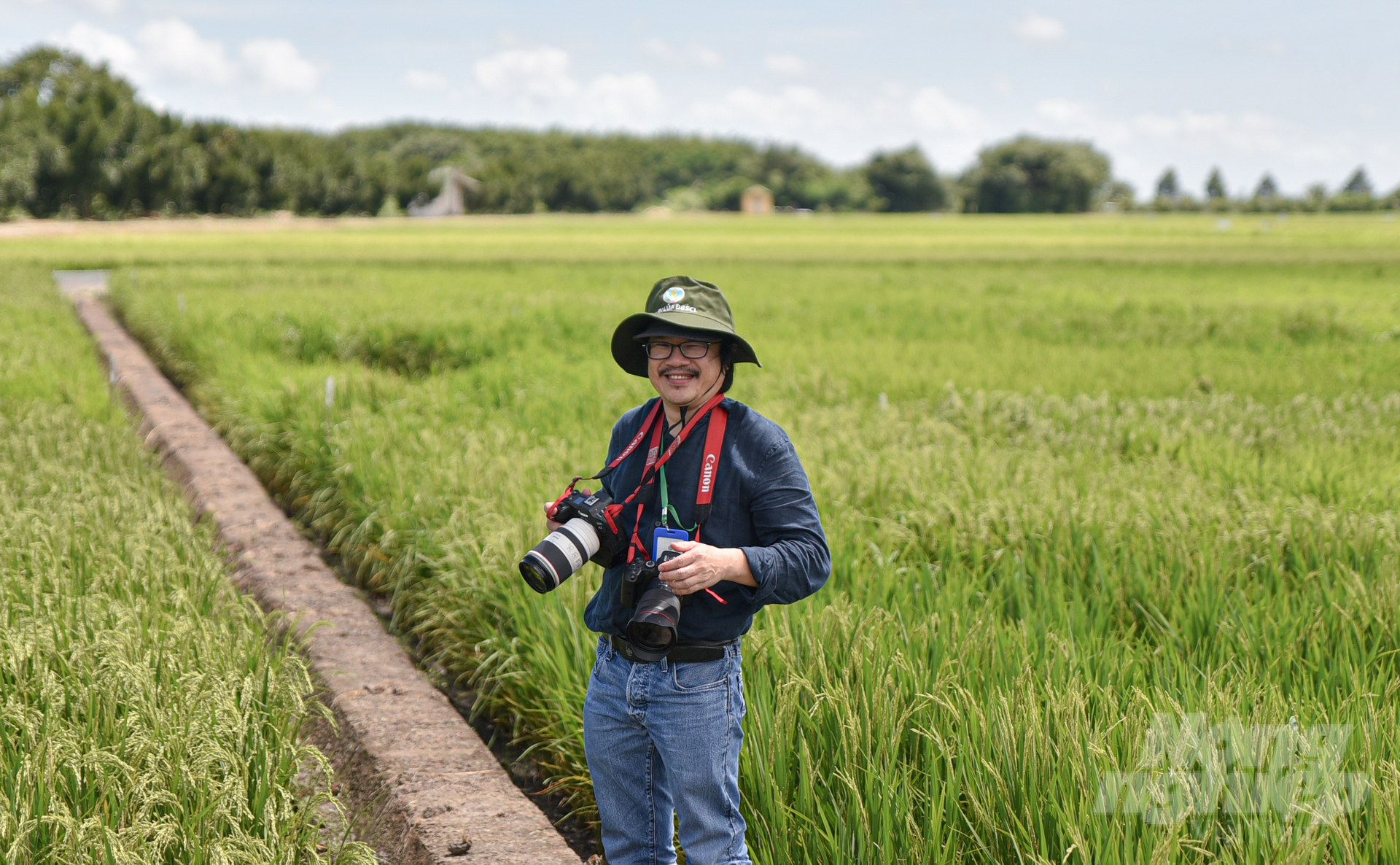
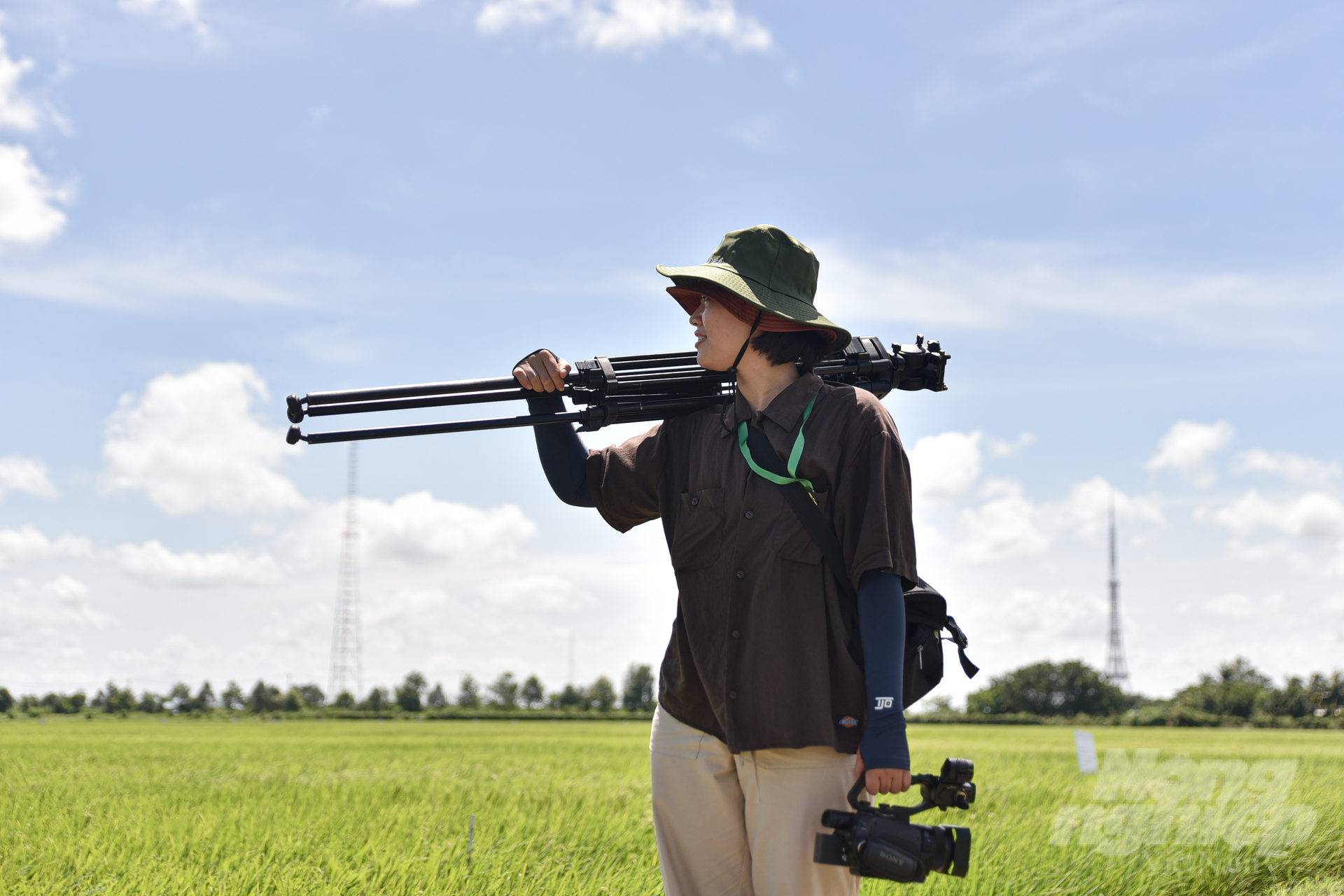
At the Cuu Long Delta Rice Institute, agriculture reporters immerse themselves in the golden rice landscape and enjoy the cool, humid breeze and a sweet fragrance across the area.
Translated by Quynh Chi

(VAN) According to Mr. Vo Minh Thanh, Director of the Tay Ninh Department of Agriculture and Environment, Resolution 57 has created a new development pathway for the locality, shifting from traditional toward modern agriculture.
/2025/11/26/4909-2-154329_878.jpg)
(VAN) Pearl grouper farming in HDPE cages not only delivers economic efficiency but also contributes to protecting the environment, creating jobs, and promoting marine-based experiential tourism.

(VAN) The model of making a living under the forest canopy through the agroforestry system in Van Son commune, Bac Ninh province, is expected to generate an annual income of approximately VND 30 million/ha.

(VAN) Many enterprises in Can Tho are harnessing natural energy and reducing greenhouse gas emissions in their production processes, thereby contributing to the promotion of a sustainable green transition.
/2025/11/24/3536-2-112800_176.jpg)
(VAN) Dong Nai now has tens of thousands of hectares of forests certified for sustainable management, and this area will continue to be expanded in the coming period.

(VAN) Vinh Ha hamlet (Dai Xuyen commune, Hanoi) is shifting away from small-scale farming as households adopt bioscurity into their breeder chicken models.

(VAN) Heavy rains make aquatic species more vulnerable to disease. Proactive water management and high-tech systems help farmers prevent outbreaks and protect yields.